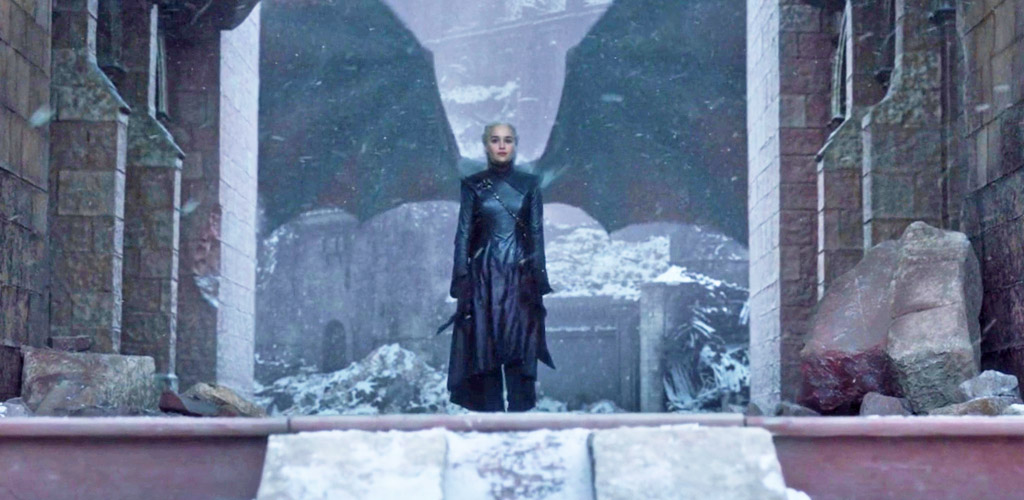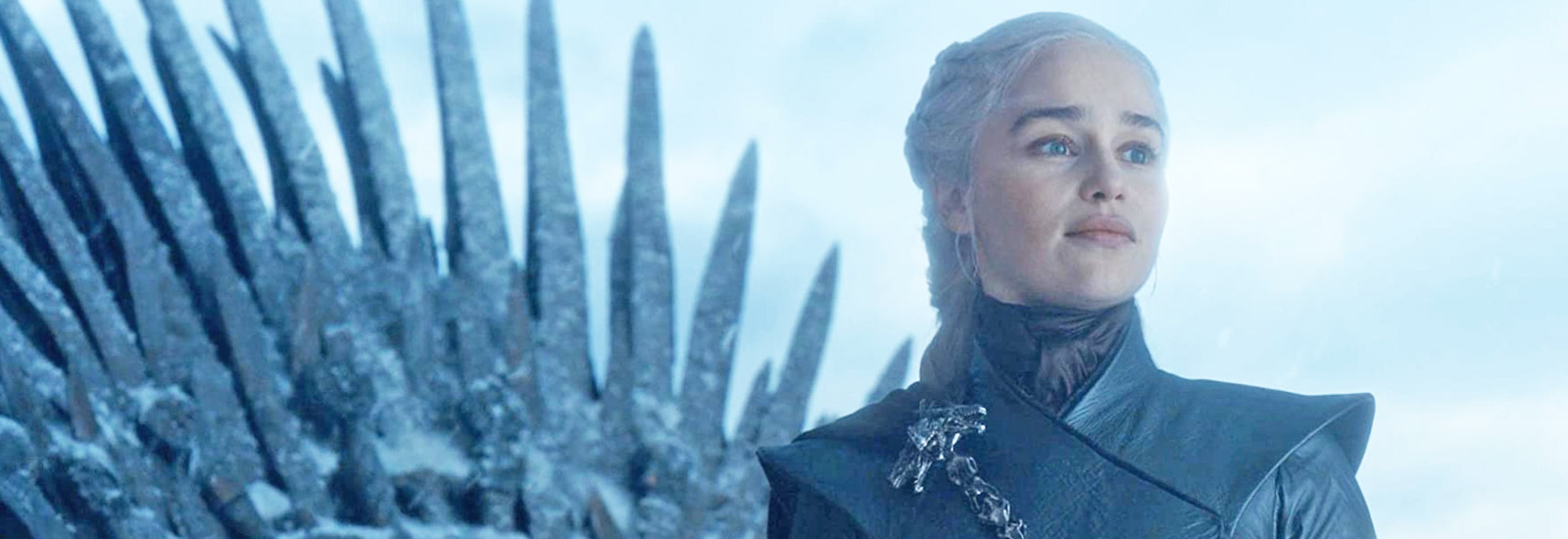For two months last year, in April and May 2019, Game of Thrones took over my life, and my life was Game of Thrones. I reckon I’m not the only one. It was the final season of one of the biggest shows ever, the last piece of the TV monoculture with more Emmy wins and nominations than any scripted series. As someone who writes about TV for a living, it was nice to cover something that everyone was watching, or at least was willing to discuss (yell about) the next day; it sure beats writing about Brockmire for an audience of 47 people who are slowly catching up on Hulu. (Watch Brockmire! It’s great!)
But following the series finale, which apparently people had a lot of opinions on, I haven’t re-watched a single episode of Game of Thrones. That’s not a knock on the show overall (I love The Sopranos, which has an objectively perfect finale, but I also haven’t gone back to “Pine Barrens” since binging all six seasons a few years ago) so much as Thrones burnout. It got back so bad that last April, I started dreaming about hanging out with Daario. Not even a good character, like Sansa, but Daario! Do not recommend.
Anyway, I should say, I’m in the majority of people who did not enjoy the finale. I wasn’t angry about it, but I can’t say I liked it, either. And I haven’t thought about Thrones much since. But with today being the one-year anniversary of the finale, I thought I would re-watch “The Iron Throne,” and see if it was better, worse, or the same as I remember.

I was cautiously optimistic heading into the re-watch, hoping we were unnecessarily cruel on “The Iron Throne.” Maybe it was a victim of unprecedented hype, and it would have a Pinkerton-like arc: hated at the time, loved in the future. But “The Iron Throne” isn’t Pinkerton — it’s Make Believe, or Raditude, or Harley, or the disappointing Weezer album of your choice. There’s enough good stuff in there to remind you of what once, but not enough to make you, y’know, like it. But first, I want to hand out some compliments.
What Works
It’s great to hear the theme song again (between Game of Thrones, BoJack Horseman, and Unbreakable Kimmy Schmidt, we’ve lost too many never-skip theme songs in the past year); the acting is uniformly excellent, especially Emilia Clarke’s steeliness as Daenerys Targaryen and Peter Dinklage’s heartbreaking performance as Tyrion Lannister (it’s fun to dunk on pouty-faced Kit Harington, but he brought it in season eight); the Mother of Dragons’ final outfit is killer; everything looks expensive; and it’s good to see my dude Tormund again. All that was true last year, and it’s still true now.
Those are the positives. But before getting to the negatives, there’s…
What I Forgot
Daenerys doesn’t appear until 15 minutes into the episode, and she dies halfway through; the Dothraki are the only fun characters; and how annoyed I was that Bran, not Davos, was named the Lord of the Seven, er, Six Kingdoms.
What Doesn’t Work
Let’s say, this time last year, you wanted to see what the hoopla was about and you decided to watch Game of Thrones for the first time. What would you know about Bran, based only on “The Iron Throne”? Well, he has a weird nickname, “Bran the Broken.” He’s in a wheelchair; he appears to be emotionless; he’s “the keeper of all our stories,” whatever that means; and in his first small council meeting, he barely says or does anything. “This is your leader?” you might ask. “The winner of the game of [checks notes] thrones?” What an inspiring choice. In a vacuum, I don’t hate Bran becoming king (he’s a better pick than Jon), but Game of Thrones did not do the work to convince us that he was the right choice — he’s an interrupting weirdo whose powers remain frustratingly undefined. To make sense of King Bran requires too much headcanon. Even Isaac Hempstead Wright, who played Bran, seemed unsure about his character’s arc.
👑🤷♂️
— Isaac.H.Wright (@Isaac_H_Wright) May 20, 2019
The narrative shortcuts remain the most frustrating element of Game of Thrones season eight, and the final episode, in particular. The Breaker of Chains turning into the Mad Queen? I buy it, in theory, but Thrones never showed the receipts, so to speak. It all felt pre-determined, not earned, or as our own Jessica Toomer wrote before the finale, “So many grand plots have been thwarted because the landing was rushed.”
“The Iron Throne” is also a gloomy, laborious episode, mostly shot in ashy darkness and largely missing what Game of Thrones was always the best at: two characters in a room, scheming and/or arguing. There’s a reason the most passionate scene in the finale is the one where an imprisoned Tyrion tells Jon that it’s his duty to kill Daenerys. The Breaking Bad or Mad Men finales work divorced from context, but not “The Iron Throne.” Once you know what happens to Bran and Brienne, it’s about as interesting as an already-solved maze. Again, not terrible, but not something I’m clamoring to watch again, either.
On May 19, 2019, “The Iron Throne” was almost immediately declared by the Comic Book Guys of the world the “worst series finale” ever (it’s a rule that everything on the internet has to be either the best or worst, with nothing in-between, which is where 99 percent of things fall). But watching “The Iron Throne” on May 19, 2020, twelve months removed from the hype, that’s not true. It never was. The Dexter finale is way worse, to use a recent example. How I Met Your Mother, too, and I’m sure there’s some codger out there who’s still furious over how December Bride came to an end in 1959. But Dexter Morgan and Ted Mosby didn’t inspire packed Hall H panels at Comic-Con, or headlines calling them the “world’s most popular show.” Game of Thrones became a victim of its own success; people hate the episode, because they love the show. Also, it’s boring.
A year later, “The Iron Throne” is what it always was, a disappointing ending to a once-great show, not the cataclysmic failure it’s often depicted as. It’s — to quote a show that will never have a bad finale, as it will never end (brilliant strategy, tbh) — meh.







